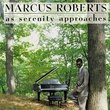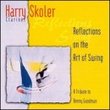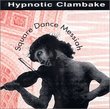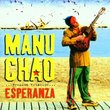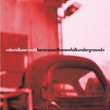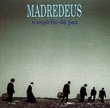| All Artists: Peter Lang Title: Guitar Members Wishing: 0 Total Copies: 0 Label: Horus Records Original Release Date: 11/11/2003 Release Date: 11/11/2003 Genres: Country, Blues, Folk, New Age, Pop, Rock, Metal Styles: Outlaw Country, Classic Country, Contemporary Blues, Traditional Blues, Traditional Folk, Contemporary Folk, Instrumental, Rock Guitarists Number of Discs: 1 SwapaCD Credits: 1 UPC: 804047103621 |
Search - Peter Lang :: Guitar
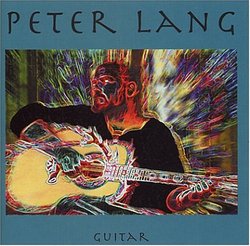 | Peter Lang Guitar Genres: Country, Blues, Folk, New Age, Pop, Rock, Metal
In May of last year, Dirty Linen wrote: "Lang is still firmly rooted in the 60s/70.s John Fahey/Leo Kottke blues/folk/Americana styling that he helped pioneer, and it.s certainly refreshing to hear it being played this wel... more » |
Larger Image |
CD DetailsSynopsis
Album Description In May of last year, Dirty Linen wrote: "Lang is still firmly rooted in the 60s/70.s John Fahey/Leo Kottke blues/folk/Americana styling that he helped pioneer, and it.s certainly refreshing to hear it being played this well by one of the old masters . . . Let.s hope it doesn't take Lang another 20 years to produce a follow-up." The good news is that it hasn't! Lang returns with his newest work Guitar, a heartfelt romp around the fret-board. The album has 11 new and original pieces penned by Lang including the tributes to mentor and friend John Fahey (Witness to the Messenger). The songs include blues flavored pieces, delicious slide work, and several rich classical flavored pieces. All aspects of this project were produced by Lang, including the edgy cover art and notes. If you love acoustic guitar this is an album you won?t want to miss. Similarly Requested CDs
|
CD ReviewsBravo, peter! Sean Cooper | Brooklyn, NY | 09/14/2004 (4 out of 5 stars) "While I missed it the first time (I was 2 when it was released), when I finally came around to the Takoma guitarists in my 20s I was awestruck by the combination of spareness and experimentalism at work in Lang's "The Thing at the Nursery Room Window." And while I enjoyed "Dharma Blues," it felt a little too safe, lacking as it did many of the rootless asides and extended tangents that his debut traded in. Not "Guitar." "Nursery Room"'s rightful descendent, the album strikes a meaty balance between four-square structure and brain-tickling abstraction, playfulness and poise. From the modal opener "Little Cairo" to the Pahinui-esque "After the Fall" to his touching evocation of Fahey in "Witness to the Messenger," Lang is spot on even as he's a little bit off -- a stylistic trait peculiar to the Takoma guitarists as a whole and a big reason why their music was/is so much more rich and soulful than that of the merely technically proficient. A triumphant return." "American Primitive Guitar" Pioneer: Peter Lang Michael Tanner | Santa Cruz, CA USA | 07/28/2004 (5 out of 5 stars) "Along with Leo Kottke, Peter Lang is the first son of a style of music developed by John Fahey sometimes called "American Primitive". Lang was discovered by Fahey and his first recording appeared with together with Fahey and Leo Kottke in the 70s on the Takoma label. Guitar is the second album of Lang's since his hiatus 20 plus years ago from the music business. This collection of instrumentals contains some of his most mature and durable work. "Little Cairo" is a slide guitar gem that incorporates a Middle Eastern feel. There is an homage to the late blues guitarist (he taught Dylan to play the guitar), called "Snaker Ray Has Come & Gone" This tune is a compendium of blues styles used by Ray and Lang, and completes a tribute to the man who first motivated Lang to become a performer. It ranges from fast to delicate. Lang was known in the 70s and 80s and one of the premier fast wizards of fingerpicked guitar. He still has speed in his creative tool box, but listen to "All Through My Life". This is a well honed gem that ranges in speed and intensity, but its primary strength is that it is melodically beautiful, richly complex, and moving. Peter Lang has the uncanny ability of a virtuoso that doesn't just dazzle with technique, but has the wonderful gift of turning personal explorations into universally moving experiences. If you are wondering how he compares to fellow Minnesotan, Leo Kottke. Lang plays less aggressively, is more blues oriented than Kottke, consitently plays more melodicly and doesn't use finger picks, which gives him more expressive control of the guitar (acoustic and electric). I am a big fan of Leo's, and the idea of comparing these two greats is silly. If you are a Kottke fan, then you already like the American Primitive guitar genre, and should include many Peter Lang CDs next to Leo Kottke, and consider them as equals."
|

 Track Listings (11) - Disc #1
Track Listings (11) - Disc #1